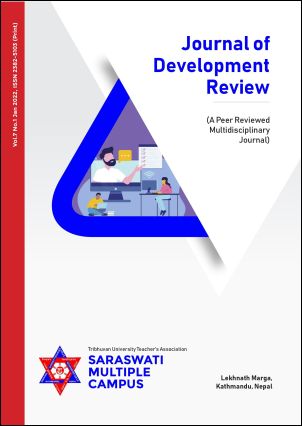Revisiting Black History in William Faulkner’s Light in August
DOI:
https://doi.org/10.3126/jdr.v5i1.51138Keywords:
discourse, fictionalization, margins, official history, revisitingAbstract
This paper aims to explore and analyze Faulkner’s novel that fictionalizes the history of Southern part of the US during the time of Harlem renaissance when blacks were conscious of their own position as blacks as well as the time of Jim Crow laws that legalized racial segregation in the south. The book depicts whites’ domination of America and it questions the representation of blacks as violent and irrational and challenges the official history with its emphasis on white supremacy and condemnation of blacks. It puts the issues and experiences of black people at the center of the text and through an engagement with historical realities of American South tries to blur the boundaries between history and fiction. The violent nature of Joe Christmas is not an inborn quality but a result of various socio-political forces that have played a key role in shaping his psychology. The truths about blacks are white ‘constructs’ and Faulkner brings those constructs under scrutiny in this novel. This paper looks at the novel as a fictionalization of history and a questioning of official history in the light of theoretical insights derived from Stephen Greenblatt, Michel Foucault and Louise Montrose.




